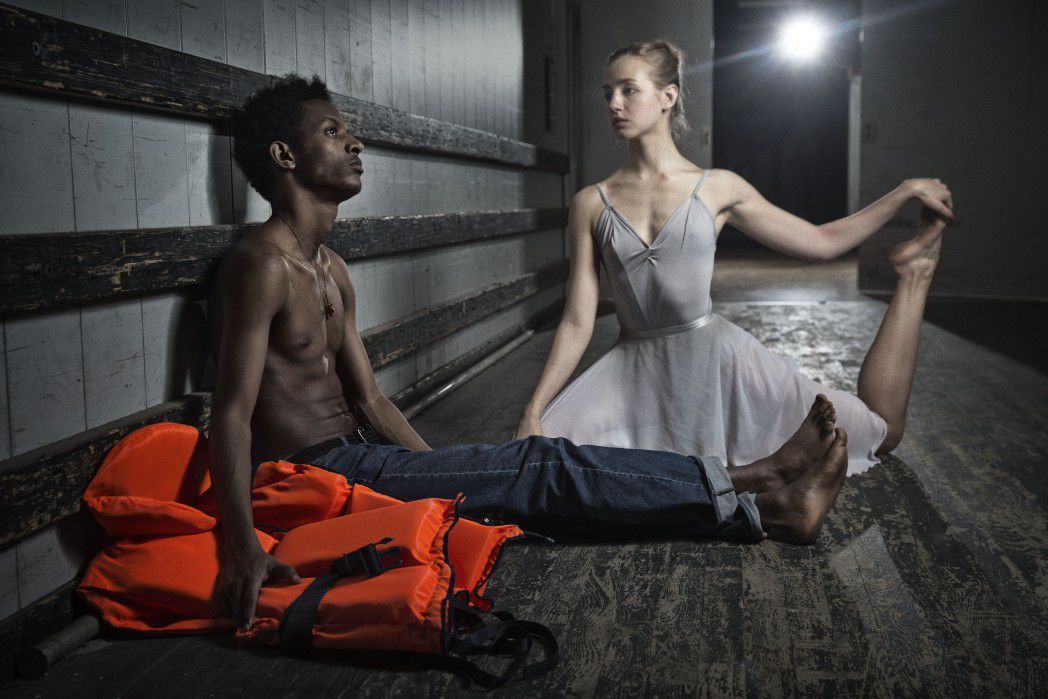And the beat goes on. A rhythmic, monotone sound floods the hall. It crawls up the rows to the very back of the theatre. No seat is spared. This concerns everyone.
The stage is entirely white like almost all items upon it: the long table and the twelve chairs on each side of it. White and somehow typically Danish.
Nothing seems to fit into this sterile environment. But then there are people. They just appear. Out of the blue. They look lost. What happens next is disturbing. A coldish voice rings out. It doesn't belong to anyone on stage. It is loud and insistent, addressing the new arrivals: "Who are you?" And: "Why are you here?"
One by one the asylum-seekers tell their stories: Jesca was tormented for being a lesbian in Uganda. Samson, whose father died in prison in Eritrea, fled from the tyrannical Afewerki regime. Salam and Elian used to work as music professors at the University of Homs until Syria became war-torn. Every single destiny releases a shockwave. Yet before it overwhelms the audience it breaks and trickles away.
The scenery leaves no space for sentimentalities. The changes of pace and volume and the fast, edged movements of the ballet dancers create a confusing yet spectacular atmosphere.
Besides, the off-voice demonstrates the sober, unemotional reality refugees face at the preliminary end of their journey to a safer life: "It's touching what happened to you, anyway, we cannot take all the asylum-seekers who come to our country. We need to pick one of you!" The off-voice calls upon the audience to decide who may stay. Silence. Until a guy in the front row mumbles into the microphone in front of his nose: "I really don't know!"
This play is confronting yet not reproachful. It is rousing yet not indoctrinating. But what is most noteworthy is the way it provokes and particularly takes hold of the audience's emotions. The purpose: Make the spectator lose control over its personal, subjective affectivity and let it feel the weakness and discomposure this condition causes.
What it is all about is the here and now. And the here and now is Denmark. How does it feel to apply for asylum? Being nothing but a number? Telling your story over and over again and at the same time suppressing emotions and memories?
In the end there is this huge screen. It shows the sea and its dark, monstrous waves in a close-up view. In the background someone is playing the violin. It is Elian from Syria.
The drums are getting louder again and booming as never before. Fog ascends from the stage and the asylum seekers and ballet dancers jump around. Then the beat goes off.
"UROPA - An Asylum-Seekers Ballet" is a co-production between the Royal Danish Ballet's dance lab Corpus and the Copenhagen-based theatre Sort/Hvid. When the project started nine asylum seekers participated. Two were rejected asylum and went underground. One was sent to France due to the Dublin Regulation. The performances at the Royal Danish Theatre in Copenhagen, Aarhus Theatre and Gram Castle at the Danish/German border were already sold out for more than a week before the premiere on the 29th of January

